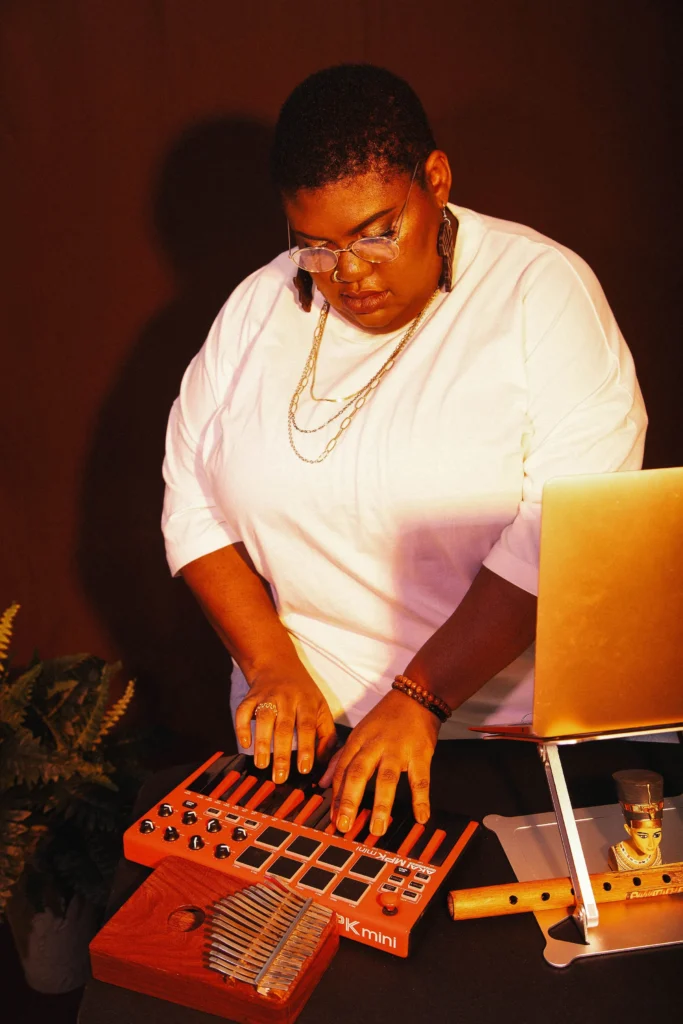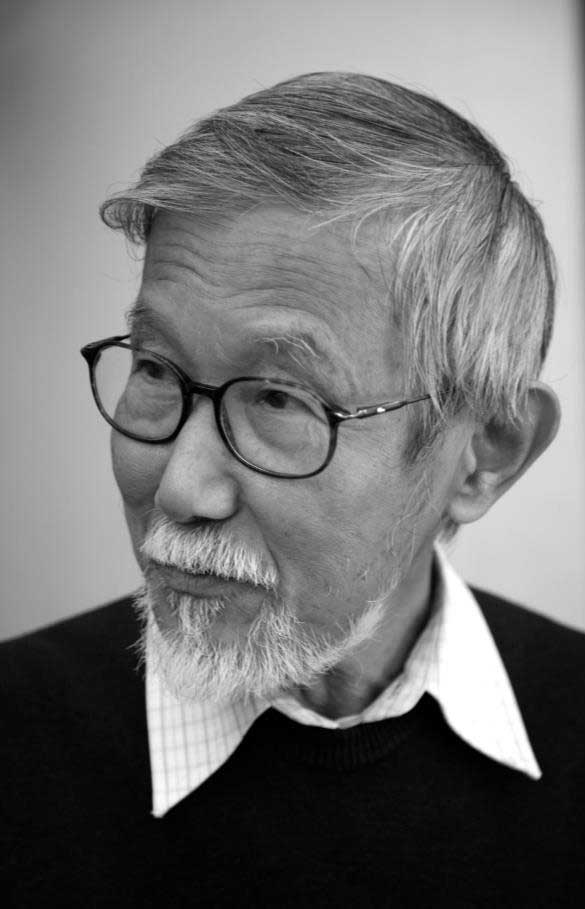Like great unusual wine pairings that create surprising bridges for innovative harmonious experiences, every concert in NOVA Chamber Music Series’ 2025-2026 season highlights the organization’s long successful programming brand. For example, Elegies and Romances, the theme of the Sept. 21 opener (Libby Gardner Hall, 3 p.m.), pairs music by Rachmaninoff and Mozart with Utah premieres of works by contemporary composers Bianca Quigley and Brittany J. Green.
Quigley‘s 2024 string quartet Dusk Events, first commissioned by JACK quartet, was inspired by the singing of hundreds upon hundreds of tree frogs, which she recorded, after realizing that she had originally mistaken the noise as coming from birds. A violist based in Baltimore, Quigley’s award-winning compositions have been influenced by exploring distinctions between and blurring the lines of acoustic and electronic sound. She recently was awarded a grant from the Peabody Institute to lead a research and product development project in electronic instrument fabrication. She has studied with a diverse range of new music pedagogues, including Inés Thiebaut and Anthony Green, whose works also have been presented to Salt Lake City audiences. In addition to composing, Quigley has a diverse background in viola performance, attending prestigious summer festivals such as Bowdoin, Meadowmount and Orford Musique. She has studied viola with renowned pedagogues like Roberta Zalkind, Claudine Bigelow, Jutta Puchhammer-Sédillot, Julie Edwards, Jeffery Irvine, and Patricia McCarty. She also received the Ada Arens Morawetz Memorial Award and recently placed third in the Prix d’Ete Composition Competition.

Also receiving its Utah premiere is Green’s Thread and Pull (2022), a quintet for violin, viola, cello, bassoon and piano, a version commissioned by Fifth House Ensemble. Thread and Pull explores concepts of restraint, constraint, and dissension, as driving rhythms move throughout the ensemble in tandem and opposition, halted by gestures of silence. The piece utilizes text from Ghazal 1419 by Jalāl al-Dīn Muhammad Rūmī.
Based in North Carolina, Green composes music highlighting the intersection of sound, video, movement and text. Recent works engage sonification and black feminist theory as tools for sonic world-building, exploring the construction, displacement and rupture of systems. Her artistic practice includes spoken and electronic performance, interdisciplinary collaboration, experiential projects, and acoustic and electroacoustic chamber and large ensemble works. Her music has been featured at Chicago Symphony Orchestra’s MusicNOW, World Saxophone Congress, New York City Electronic Music Festival, the American Piano Awards, and performances at Carnegie Hall, Tanglewood, the DiMenna Center, and Miller Theater. Recent collaborators include Lexington Philharmonic, Louisville Orchestra, Karen Slack, Rebekah Heller, and Alarm Will Sound. She holds awards from the American Academy of Arts and Letters, ASCAP, and New Music USA. Green holds a doctorate from Duke University.
The concert also will feature Rachmaninoff’’s Trio élégiaque no. 1 in G minor, for violin, cello and piano, along with his Six Romances for Voice and Piano, op. 38 (1893), featuring soprano Jin-Xiang Yu, soprano and Kimi Kawashima, NOVA’s music director, on piano. Closing out the opener will be a Mozart work that needs no introduction: Eine kleine Nachtmusik.
The four other concerts for the Libby Gardner Hall series (on various Sundays at 3 p.m.) include plenty of Utah premieres and programming themes that are being used for the first time in many years on the NOVA stage. The Nov. 16 concert’s Sacred Spaces theme features music by Bach and Shawn Okpebholo, with guest performers baritone Timothy Jones and tenor Thomas Glenn, along with the University of Utah Chamber Choir and Eric Schmidt as conductor.
Two works by Okpebholo will receive their Utah premieres and are parallel to two Bach works (Liebster Jesu, mein Verlangen, BWV 32 and Nun komm; der heiden Heiland, BVW 61): Distance for cello and marimba (2016) and Two Black Churches (2020). This is the third consecutive NOVA season in which a work by Okpebholo has appeared in at least one concert. He composed Distance in memory of Roger Lundin, a teacher, friend and colleague, and the piece was inspired by Miho Nonaka’s poem Distance, along with musical quotations from Prepare Me One Body and For All the Saints.
Two Black Churches, composed for baritone and piano, has two movements, marking the 1963 bombing at 16th Street Baptist Church in Birmingham and the 2015 shooting at Mother Emanuel AME Church in Charleston. With poetry by Dudley Randall (Ballad of Birmingham) and Marcus Amaker (The Rain), the piece blends Black gospel idioms, symbolic musical references, and poignant lyricism into a meditation on grief, injustice, and faith.
Okpebholo was named last December Chicagoan of the Year in Classical Music by the Chicago Tribune. Music critic Hannah Edgar wrote. “I’m even harder pressed to think of anyone, anywhere, who composes with Okpebholo’s finesse across so many genres. His art songs ache, from the shattering diptych of Two Black Churches to Songs in Flight, whose settings of runaway slave ads were the most haunting thing I heard this year. His instrumental music surges with Ivesian detail and color. His Black Music, for saxophone quartet and trumpet, premiered on what was ostensibly a Scott Johnson tribute concert in February. That heady work made off with the whole thing.”
The 2026 portion of the season continues Jan. 18 with French Impressions, featuring music of Ravel and Messiaen, and the Vietnamese composer Ton Thât Tiêt, 92, who studied in France and has blended Western classical and Far East cultures in his music. As Laurence Bancaud explains, “His works contain two main themes: Man and Mankind, from Chinese humanism, and Man and the Universe, through the vector of Chinese philosophy, namely the Five Elements, Hinduism and Buddhism. In his music he also tries to revive traditional Vietnamese music, particularly of a sacred nature, that of the Court in Hué and the Ca Tru, the music of Northern Vietnam.” Selections will include Ravel’s Cinq mélodies populaires grecques and his String Quartet in F Major, along with Messiaen’s L’Ascension. Guest performers highlight the typical blockbuster slate at NOVA: Richard L. Elliott, principal organist of the Tabernacle Choir at Temple Square; composer and pianist Jared Oaks, who also is Ballet West’s music director; tenor Christopher Puckett and the Fremont String Quartet, representing the Utah Symphony string section principals.
Definitely a first for NOVA, Recuerdos Musicales (March 8) will feature Spanish, Cuban and Mexican music by composers from the diaspora, all of whom make for one of the richest chapters of music history to be represented this season at NOVA.
Among them will be Manual Ponce (1882-1948), best known for his guitar love serenade Estrellita (My Little Star), which was made famous by violinist Jascha Heifetz. As one of Heifetz’s students recalled, “In 1923 he was in Mexico City and realized he didn’t have any work by a Mexican composer. While in a cafe there, he heard … local musician…[sing Estrellita (My Little Star)]. He took notes on his napkin and that night, composed an arrangement for violin and piano based on the song. It became one of his favorite encores.” The song was also featured in the 1939 film They Shall Have Music. The concert will also feature Enrique Granados’ 12 Tonadillas.
A trio for viola, soprano and guitar from a nearly-forgotten Catalan historical figure also will be featured on the concert. Catalan cellist and composer Gaspar Cassadó (1897-1966) likely would have become as well-known as his fellow contemporary and countryman Pablo Casals (1876-1973), had Casals not intimated that Cassadó was not as forceful a critic of the Nazis, Italian fascists and Francoist Spain as he could have been. The accusations damaged Cassadó’s reputation and he ended up canceling a major tour. In recent years, his reputation has been rehabilitated, thanks to the efforts of Gabrielle Kaufman, a cellist and scholar in Barcelona, whose book about the composer was published in 2018 and includes the first complete listing of his more than fifty compositions.
Contemporary composers will include University of Utah music professor Elisabet Curbelo, a Spanish composer and native of Gran Canaria, whose Mikrop for viola and electronics will receive its Utah premiere. She studied piano pedagogy, voice and composition in her hometown, as well as Madrid and Istanbul. She holds a doctorate in music composition from University of California-San Diego. Her pieces have been performed in Spain, Turkey, U.S., Germany, Switzerland and Holland. Her research focuses on the use of sensors to control electronics with movement and the use of extended vocal techniques based on her research of Middle Eastern music.
From Leo Brouwer, a Cuban native born in 1939 to a family of well-known musicians, Quintetto no. 2 (2019) for string quartet and guitar will receive its Utah premiere. His music has evolved over his lifetime. As a young man, he combined traditional classical elements with Cuban inspiration but then after the revolution during the 1960s, he was inspired by avant-garde composers such as Penderecki and Bussotti, and those working in post-serialism and aleatoric work. He later would return to Afro-Cuban roots inflected with elements of traditional classical,techniques and minimalism. Brouwer’s guitar works are well known to guitarists around the world.
From Julio Estrada, who was born in Mexico City in 1943 after his family was exiled from Spain, yuunohui’ tlapoa’ome (2020), its title coming from the Nahuatl Indigenous language, will be performed. Estrada studied with many of the greatest 20th century teachers and composers, including Nadia Boulanger, Messiaen, Xenakis, Stockhausen and Ligeti. He also has edited the most comprehensive volumes on the history of Mexican music.
To close out the season’s Libby Gardner Series, NOVA will not be holding back on the musical pyrotechnics, guts and glory with Romani Rock (April 19), featuring works by György Ligeti, Leoš Janáček, Ravel and a world premiere by Utah composer Igor Iachimciuc, scored for cello and cimbalom. Music will include Ligeti’s Hungarian Rock, Janáček’s String Quartet no. 1 (Kreutzer Sonata), Ravel’s Tzigane, and George Enescu’s Octet for Strings in C major, Op. 7, considered on par with Mendelssohn’s famous counterpart for strings. The all-star lineup for this concert will include the Fry Street Quartet, two former NOVA music directors (Utah Symphony concertmaster Madeline Adkins and pianist Jason Hardink), Edmund Rollett on French horn, and violinist Laura Ha, among others.
NOVA also will offer two gallery concerts this season at the Utah Museum of Fine Arts, which have been curated by the members of the Fry Street Quartet. The first, Fire and Fantasy (Oct. 12, 3 p.m.) is a wonderful mix, including Grażyna Bacewicz’s Trio for Oboe, Violin, and Cello; Benjamin Britten ‘s Six Metamorphoses after Ovid, for Oboe solo, Op. 49 and Bohuslav Martinu’s String Trio No. 1, H. 136. The Fry Street Quartet will cap things off with Debussy’s String Quartet in G minor, Op. 10.
One of NOVA’s signature collaborations featuring the Fry Street Quartet and pianist Frank Weinstock will present Beethoven and Schubert at the Summit (Feb. 22, 3 p.m.). One is Beethoven’s String Quartet in C-sharp minor, Op. 131, comprising seven movements. Weinstock will perform Schubert’s Piano Sonata in B-flat major, D.960, the composer’s final work, on a period instrument.
For tickets and more information, see the NOVA Chamber Music Series website.





